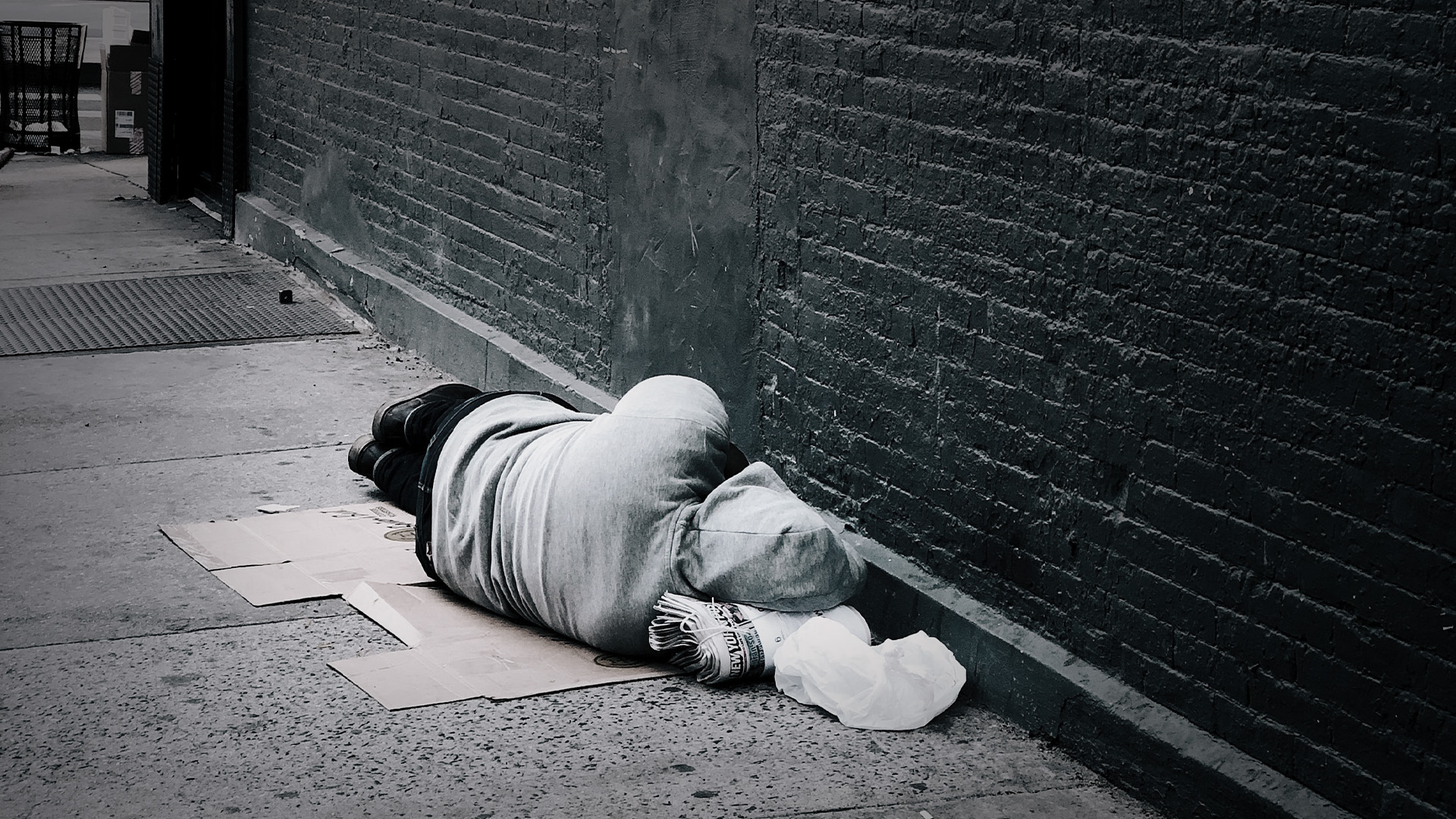
In John 9:2, the disciples ask Jesus, “Rabbi, who sinned, this man or his parents, that he was born blind?” Their inquiry wasn’t unusual. In that ancient world, most people believed that people got what they deserved. Wealth, success, and power were given to righteous individuals who earned God’s favor. The poor, diseased, or disabled suffered God’s wrath due to their foolishness or sin. Here, the disciples assumed this man’s unfortunate circumstances were preventable if he or his family had lived differently or made better decisions.
In the 21st century, we aren’t much different. Rather than learning the stories of people who suffer, we prefer to make up our own.
Learn the Stories
When we see a homeless man begging for money at the end of a freeway ramp, we notice if he’s smoking cigarettes. As he approaches our vehicle, we note if there’s alcohol on his breath or track marks on his arm. From these observations, we quickly surmise why he’s homeless and how he spends his money. Our conclusion often affects whether we choose to help.
Many of us conclude people like this man are homeless due to bad individual decisions. Laziness. Addiction. Dropping out of school. If this person would get a job, enter a rehab facility, and take control of his life he’d be so much better off. We assume helping such people just funds their addictions and perhaps even validates their victim narratives, their beliefs that the world is against them. In other words, we assume a person is homeless because of his own sin and failure.
We assume a person is homeless because of his own sin and failure.
Would our opinion change if we found out this man was passed around multiple foster homes as a child and horribly abused in some of them? What if we also learned he attended a failing school characterized by shoddy instruction, violence, and drugs? To get away from his abusive foster parents and this chaotic educational environment, he ran away and never finished high school. With no home address or references, he never secured a driver’s license or anything necessary to land a job. In other words, this man was sinned against by caretakers and failed by systems.
Each homeless person’s life is filled with great complexities. Their stories are entangled in poverty, addiction, and pain due both to what they’ve done and what’s been done to them.
Open Your Eyes to Complexity
The complexities grow exponentially when we turn our attention to communities wracked by destitution, death, and drama. The vitality and flourishing of any living thing are intricately connected to the overall health of the surrounding ecosystem.
Many conclude the residents of poor neighborhoods are lazy, uneducated, sexually promiscuous, prone to violence, and dependent on government services for their food and healthcare. They’re getting what they deserve. There are some people like this in poor communities (and any other community). Some able-bodied individuals refuse to get a job. Some men father babies out of wedlock and abandon them. Other people take government resources and don’t contribute to society. There are individuals who make bad decisions that harm themselves and those around them.
With that said, there’s probably not a grocery store that sells healthy produce within five miles of this neighborhood. There are no good jobs within 15 miles. Moreover, most of the residents don’t own a car. Nearly everyone is a renter. Their landlords, who may live in another state, don’t maintain the property. Property value is so depreciated that there’s no tax revenue for the local schools. These schools are underresourced and can’t maintain a steady faculty. The overall ecosystem suffers from the absence of life-giving resources.
When we consider why individuals suffer and communities fail, we must admit the reasons are extraordinarily complex. To solely blame individuals or systemic forces is reductionistic, impersonal, and thoughtless.
To solely blame individuals or systemic forces is reductionistic, impersonal, and thoughtless.
We should interrogate our own hearts to see if our search for who’s to blame is a ruse that covers a deeper desire to excuse ourselves from participating in works of mercy and justice. Perhaps the disciples were doing just that when they asked their question in John 9.
But notice how Jesus responds:
It was not that this man sinned, or his parents, but that the works of God might be displayed in him. We must work the works of him who sent me while it is day; night is coming, when no one can work. As long as I am in the world, I am the light of the world. (John 9:3–5)
The Savior’s response doesn’t dismiss potential causes behind the man’s blindness. But he does indicate the disciples were asking the wrong question. Causes for brokenness matter, but the remedy for brokenness matters more.
Scripture is rife with instructions to individuals on how foolishness and selfishness hurt them and others (Prov. 6:9–11;14:23; 22:29). The Bible also rebukes the privileged and powerful for creating systems that abuse and oppress the marginalized (Prov. 11:1; 14:31; Is. 10:1–4.).
Despite all this, Jesus says brokenness and injustice, whether individualized or corporate, are precious opportunities for the “works of God [to] be displayed.” His instruction to all his disciples (including us) is to “work the works.” This begins with learning the stories behind the brokenness, and then it involves responding by lamenting brokenness, praying for and working to produce healing and justice wherever it’s missing, and celebrating unity, wholeness, and peace wherever we find it.
"story" - Google News
December 28, 2022 at 12:03PM
https://ift.tt/FWtlvgA
Learn the Stories Behind the Suffering - The Gospel Coalition
"story" - Google News
https://ift.tt/XhJSsFZ
https://ift.tt/nBq0pRA
Bagikan Berita Ini














0 Response to "Learn the Stories Behind the Suffering - The Gospel Coalition"
Post a Comment